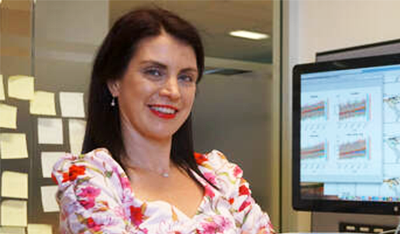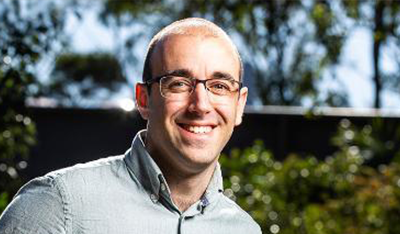
 Sarah is a Professor of Climate Science in the Fenner School of Environment and Society at The Australian National University, Canberra, Australia. She gained her PhD in 2010 at UNSW Sydney, and over the course of her career has focused on climate extremes and their projections in physical climate models. Sarah has a passion for climate extremes, particularly heatwaves. She is interested in investigating what drives them, how they may change in the future, and how these changes compare to the historical record. Sarah is also interested in extreme event attribution, which involves isolating the contributors behind certain extreme events and their impacts. Her recent research in extreme event attribution also extends to new approaches in how we may attribute the impacts of certain extremes and their impacts to anthropogenic causes. Sarah is the Deputy Director of Communications and Outreach in the ARC Centre of Excellence for 21st Century Weather, a chief investigator in the ARC Centre of Excellence for Climate Extremes, and vice president of the Australian Meteorological and Oceanographic Society. She previously held a Discovery Early Career Researcher Award (2014-2017) and a Future Fellowship (2017-2023), also supported by the ARC. Prior to ANU she worked at UNSW Canberra, UNSW Sydney, and CSIRO. Sarah is also passionate about science communication, and continues to be an expert voice in various lines of national and international media and other channels of public-facing communication on all things climate change, science, and heatwaves. She is a scientific partner with the Monash Climate Change Communications Research Hub on their Hyperlocal and Climate Communicators projects. Sarah has authored over 100 academic publications and has won various awards for her work and outreach. These include the Australian Academy of Science Dorothy Hill Medal (2021); The Australian Meteorological and Oceanographic Society Communication and Outreach Award (2021) and Early Career Researcher Award (2016.; She has also been named a Clarivate Highly Cited Researcher (2021; 2022; 2023).
Sarah is a Professor of Climate Science in the Fenner School of Environment and Society at The Australian National University, Canberra, Australia. She gained her PhD in 2010 at UNSW Sydney, and over the course of her career has focused on climate extremes and their projections in physical climate models. Sarah has a passion for climate extremes, particularly heatwaves. She is interested in investigating what drives them, how they may change in the future, and how these changes compare to the historical record. Sarah is also interested in extreme event attribution, which involves isolating the contributors behind certain extreme events and their impacts. Her recent research in extreme event attribution also extends to new approaches in how we may attribute the impacts of certain extremes and their impacts to anthropogenic causes. Sarah is the Deputy Director of Communications and Outreach in the ARC Centre of Excellence for 21st Century Weather, a chief investigator in the ARC Centre of Excellence for Climate Extremes, and vice president of the Australian Meteorological and Oceanographic Society. She previously held a Discovery Early Career Researcher Award (2014-2017) and a Future Fellowship (2017-2023), also supported by the ARC. Prior to ANU she worked at UNSW Canberra, UNSW Sydney, and CSIRO. Sarah is also passionate about science communication, and continues to be an expert voice in various lines of national and international media and other channels of public-facing communication on all things climate change, science, and heatwaves. She is a scientific partner with the Monash Climate Change Communications Research Hub on their Hyperlocal and Climate Communicators projects. Sarah has authored over 100 academic publications and has won various awards for her work and outreach. These include the Australian Academy of Science Dorothy Hill Medal (2021); The Australian Meteorological and Oceanographic Society Communication and Outreach Award (2021) and Early Career Researcher Award (2016.; She has also been named a Clarivate Highly Cited Researcher (2021; 2022; 2023).
 Andrew Zammit-Mangion is Associate Professor with the School of Mathematics and Applied Statistics at the University of Wollongong, Australia. His research focusses on spatio-temporal models, the inferential tools that enable them, and their application to studies of climate and the environment. Andrew was awarded the Cozzarelli Prize Class III (Best PNAS paper in Engineering and Applied Sciences) by the National Academy of Sciences of the US in 2013; the Abdel El-Shaarawi Young Researcher's Award by The International Environmetrics Society (TIES) in 2020; the Early Investigator Award by the Section of Statistics and the Environment of the American Statistical Association (ASA) in 2022; and, together with co-authors, three international awards from the ASA and the International Society for Bayesian Analysis (ISBA) for his work on carbon dioxide flux inversion from remote sensing data in 2023. Andrew is an ISI elected member and member of NASA's Orbiting Carbon Observatory (OCO) Science Team. In 2019 he published a co-authored book with Christopher Wikle and Noel Cressie on spatio-temporal modelling with R.
Andrew Zammit-Mangion is Associate Professor with the School of Mathematics and Applied Statistics at the University of Wollongong, Australia. His research focusses on spatio-temporal models, the inferential tools that enable them, and their application to studies of climate and the environment. Andrew was awarded the Cozzarelli Prize Class III (Best PNAS paper in Engineering and Applied Sciences) by the National Academy of Sciences of the US in 2013; the Abdel El-Shaarawi Young Researcher's Award by The International Environmetrics Society (TIES) in 2020; the Early Investigator Award by the Section of Statistics and the Environment of the American Statistical Association (ASA) in 2022; and, together with co-authors, three international awards from the ASA and the International Society for Bayesian Analysis (ISBA) for his work on carbon dioxide flux inversion from remote sensing data in 2023. Andrew is an ISI elected member and member of NASA's Orbiting Carbon Observatory (OCO) Science Team. In 2019 he published a co-authored book with Christopher Wikle and Noel Cressie on spatio-temporal modelling with R.
The programme for TIES2024 is now available at the link below. Please note that this is subject to change, and any changes will be updated at the link below.
Slides should be prepared as either PowerPoint or pdf. For contributed paper sessions, each speaker has 20 minutes for their presentation which includes a few minutes for questions. For invited paper sessions, the session organisers can arrange the timings to suit the number of participants. However, each session is 1 hour 30 minutes. Please submit your slides in advance of your session once you arrive at the conference. Details will be provided at the registration desk.
For more details on registrations and submissions for the TIES 2024, please first login to your account. If you do not have an account then you can create one below:
We have placed cookies on your device to help make this website better.
You can change your cookie settings in your web browser. Otherwise, we’ll assume you’re OK to continue.
Some of the cookies we use are essential for the site to work.
We also use some non-essential cookies to collect information for making reports and to help us improve the site. The cookies collect information in an anonymous form.
To control third party cookies, you can also adjust your browser settings.
Do Not Accept Third Party Cookies